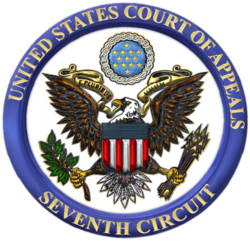 The U.S. Court of Appeals for the Seventh Circuit recently reversed a district court’s denial of class certification in a putative class action alleging that a debt collector violated the federal Fair Debt Collection Practices Act (FDCPA) by sending supposedly misleading letters to Illinois residents trying to collect time-barred debts.
The U.S. Court of Appeals for the Seventh Circuit recently reversed a district court’s denial of class certification in a putative class action alleging that a debt collector violated the federal Fair Debt Collection Practices Act (FDCPA) by sending supposedly misleading letters to Illinois residents trying to collect time-barred debts.
A copy of the opinion in Scott McMahon v. LVNV Funding, LLC is available at: Link to Opinion.
The plaintiff alleged that the defendant debt collector violated the FDCPA because it sent “dunning letters containing language that would mislead an unsophisticated consumer into believing that the debt is legally enforceable” even though the statute of limitations had run.
This was the second time appeal in the case. In the first appeal, the Seventh Circuit reversed the district court’s dismissal “because the offer of settlement [the] plaintiff received did not promise a full resolution of the matter and thus did not moot his interest in the case.” The Court explained in the first appeal that “dunning letters such as the one [the plaintiff] received ‘misrepresented the legal status of the debts, in violation of the FDCPA,’ because an ‘unsophisticated consumer’ who read such a dunning letter ‘could have been led to believe that her debt was legally enforceable.’ ”
After the first appeal, the plaintiff filed a motion to certify the class in the district court under Federal Rule of Civil Procedure 23(b)(3),“which requires the district court to find ‘that the questions of law or fact common to class members predominate over any questions affecting only individual members, and that a class action is superior to other available methods for fairly and efficiently adjudicating the controversy.’ ”
Although the district court “was satisfied that the proposed class met the numerosity, commonality, typicality and adequacy requirements of Federal Rule of Civil Procedure 23(a),” it decided that the class did not meet the requirements of Rule 23(b)(3) because “issues commons to the class did not predominate over issues affecting individual class members.” The trial court’s ruling was based on the fact that the class included persons who sought actual damages because they paid part of the debt after receiving the dunning letter, which would require individualized determinations of causation and damages.
The plaintiff moved for reconsideration of the order denying class certification, but the district court denied it. The plaintiff then petitioned for an interlocutory appeal under Rule 23(f), which the Seventh Circuit granted “[b]ecause it appears that the denial of class status is likely to be fatal to this litigation and that an appeal may promote the development of the law.”
On appeal, the Seventh Circuit agreed with the plaintiff’s argument that “the district court exceeded the bounds of its discretion when it denied class certification.” The Court explained that the district court’s analysis was inconsistent with prior rulings of the Seventh Circuit, and “suggests that the existence of individual issues of causation automatically bars class certification under Rule 23(b)(3). That overstates the case.”
The Seventh Circuit held that, although “[p]roximate cause … is necessarily an individual issue,” it had previously held that “the need for individual proof alone does not necessarily preclude class certification.” The Court went on to explain that “[it] is well established that, if a case requires determination of individual issues of causation and damage, a court may ‘bifurcate the case into a liability phase and a damage phase.’ ”
The Court also reasoned that the district court’s analysis was “internally inconsistent” because it simultaneously found that “the amount of each class member’s actual damages is ‘capable of ministerial determination’ yet that the question of causation is not.” This reasoning was faulty because “a plaintiff must prove causation to establish actual damages.” If actual damages could be determined ministerially, “causation must likewise be capable of ministerial determination.”
Finally, the Court reasoned that another reason proof of causation was irrelevant “to determining class membership in this case: The FDCPA is a strict-liability statute, and so members of the class would be entitled to statutory damages for a violation of the Act regardless of any actual damages.”
The Court vacated the district court’s order denying class certification and remanded the case for further proceedings consistent with its opinion.

